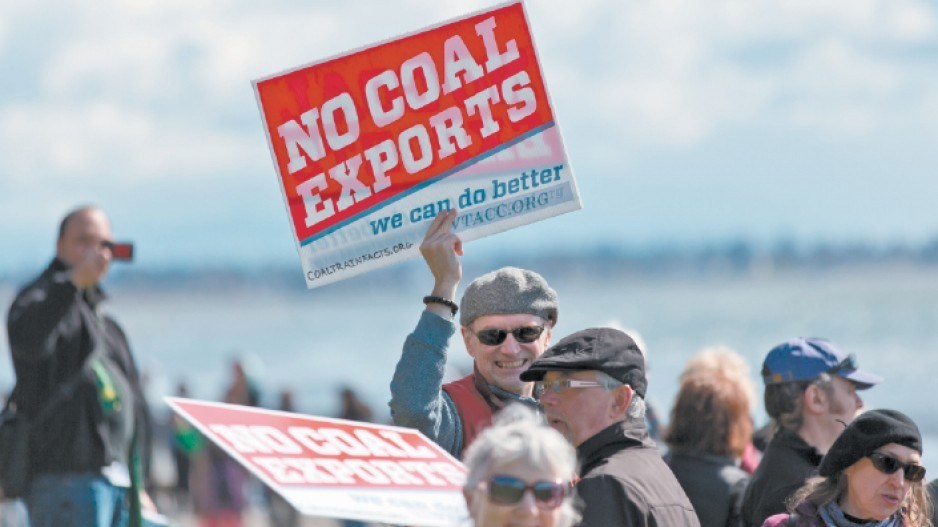A $15 million thermal coal export terminal planned for Fraser Surrey Docks has had its permit cancelled by the Port of Vancouver.
“This is a win for the climate and a testament to what can be achieved when community members stand up and say no to dirty U.S. coal,” Fraser Thomson, a lawyer with Ecojustice, said in a news release.
“With the permit cancelled, it is hard to see how the Fraser Surrey Docks coal project could ever end up being built.”
Jeff Scott, CEO of Fraser Surrey Docks, said its not clear to him what the port authority’s reasons were from cancelling the permit, which was supposed to be valid until 2020.
“We haven’t had a chance to review it,” he said. “We received notice the other day and we’re still in the process of reviewing it and evaluating it.”
But the Port of Vancouver said the permit issued in 2015 had 83 conditions attached, one of which that the project be substantially started by November 30, 2018.
The project has been controversial because it would have mainly served American thermal coal producers, although Scott said it could also have been used to export metallurgical coal.
B.C. exports large amounts of coal, but the bulk of it is metallurgical coal mined in B.C. Metallurgical coal is used in making steel, whereas thermal coal is used mainly for coal power.
Facing declining domestic demand, U.S. coal producers want to export their coal to Asia, but not even American states want to handle the commodity. Proposals to build new coal export terminals in the U.S. Pacific Northwest have been rejected.
The Fraser Surrey Docks coal project would have a capacity of shipping 4 million tonnes of coal annually, with a potential to expand.
The prospect of freight trains bringing thermal coal from the U.S. through B.C. to ship it to Asia – at a time when there is a push on to address climate change with a phase-out of coal power – did not sit well with environmental groups. The cities of Surrey and New Westminster also argued against the project in a court case.
Ecojustice is one of the environmental groups that have lobbied to halt the project. It had appealed the project’s approval to the Federal Court of Canada. But one year ago, the Federal Court dismissed the appeal.
But it appears that it wasn’t just opposition from environmental groups that has halted the project. Fraser Surrey Docks did not have enough signed contracts with customers to sanction the terminal.
“We were in the process of working with customers, and we were receiving a lot of interest, but we hadn’t had anything finalized to the point where we could finalize construction,” Scott said. “We were looking for customer commitments before we proceeded with construction.”
Another thing that might have given American coal producers hesitation in committing to exporting coal through B.C. is the prospect of coal exports becoming a political football. In 2017, in response to U.S. duties on Canadian softwood lumber, former B.C. Premier Christy Clark threatened punishing levies on American coal exports passing through B.C.
Scott said it’s too early to say if the project is dead, or if there is some way to appeal the port’s decision to cancel the permit.
“We in the process of reviewing it and we haven’t made a determination as to what next steps would be," he said.




